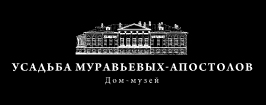MUG FOR THE DONATIONS TO THE FUND
As a rule, the patronage of arts in Russia was considered an integral part of the charity work. For instance, there are projects associated with the patronage and collection activities carried out by such noble families as Sheremetev, Baryatinsky, Yusupov, Meshchersky, Tenishev, and others. Among the merchants, the greatest attention of the historians was captured by the Alekseev, Bakhrushin, Morozov, Rukavishnikov, Tretyakov, Soldatenkov, Solodovnikov and other families. We would like to attempt to conduct an economic analysis of the patronage of arts as much as the latter is possible in terms of the available historical material since it is the patrons of arts who were the overseers of the children’s homes, orphanages, and hospitals. It was thanks to them that many institutions of such type were functioning. The classic market theory that “works” in terms of A. Smith and D. Ricardo, when trying to explain the phenomenon of the patronage of arts, ends up at a dead end. The fact of the matter is that a market-oriented economist views a human being as a “homo economicus” – an absolutely selfish person straining after the profit maximization. In the market theory, the exchange in itself is regarded as equivalent – the concepts of price, money and such are built on this underlying premise.
It is, hardly, necessary to prove that such paradigm “coarsens” the business activities of all economic entities – a human being, a collective body, and an enterprise. In their actions, people are guided not only by the material and monetary considerations, but also by the spiritual and moral ones. When the latter acquire a systematic and active character, then, the business activities of such entities can no longer be described in terms of the market economy theory and equivalent exchange. A new reality that has a different conceptual apparatus emerges, then. In the 70s-80s, the Western sociologists and economists described it in terms of the “non-profit organizations” (K. Ramanathan), “unselfish economy” (D. Collard), “non-profit economy” (B. Weisbrod), “subsidiary economy” (K. Boulding), “non-profit enterprises” (R. Gassler), etc. These concepts originate from the so-called ethical school of political economy that emerged in Russia, Germany, and England in the 19th century and explained the business activities of the individuals by the moral appeals and the combination of the selfish and altruistic motives.
It is, hardly, necessary to prove that such paradigm “coarsens” the business activities of all economic entities – a human being, a collective body, and an enterprise. In their actions, people are guided not only by the material and monetary considerations, but also by the spiritual and moral ones. When the latter acquire a systematic and active character, then, the business activities of such entities can no longer be described in terms of the market economy theory and equivalent exchange. A new reality that has a different conceptual apparatus emerges, then. In the 70s-80s, the Western sociologists and economists described it in terms of the “non-profit organizations” (K. Ramanathan), “unselfish economy” (D. Collard), “non-profit economy” (B. Weisbrod), “subsidiary economy” (K. Boulding), “non-profit enterprises” (R. Gassler), etc. These concepts originate from the so-called ethical school of political economy that emerged in Russia, Germany, and England in the 19th century and explained the business activities of the individuals by the moral appeals and the combination of the selfish and altruistic motives.








